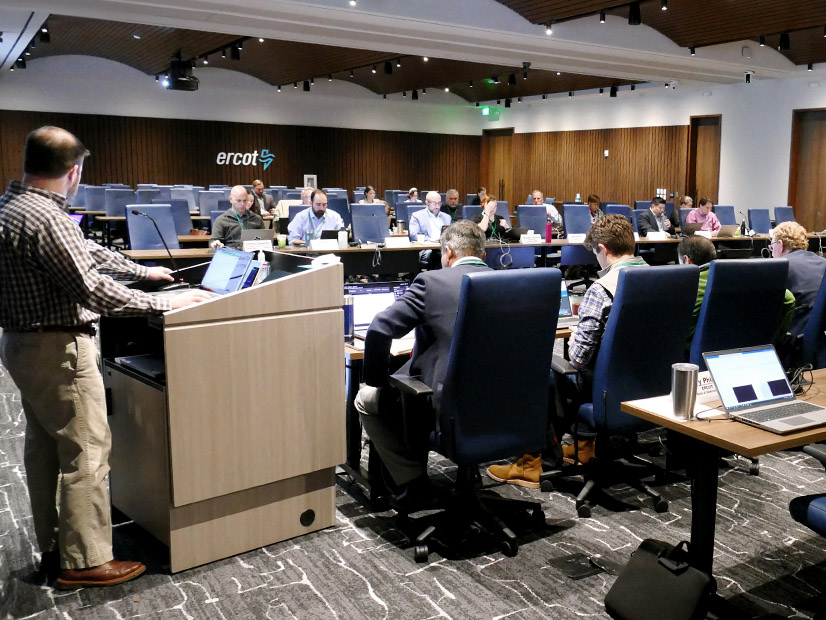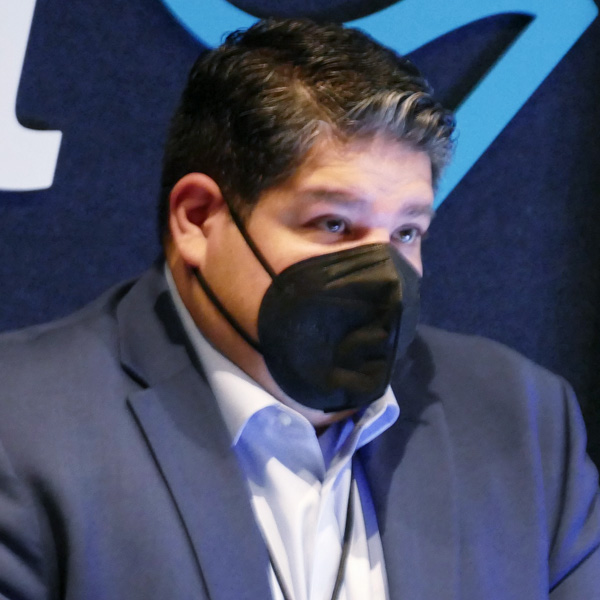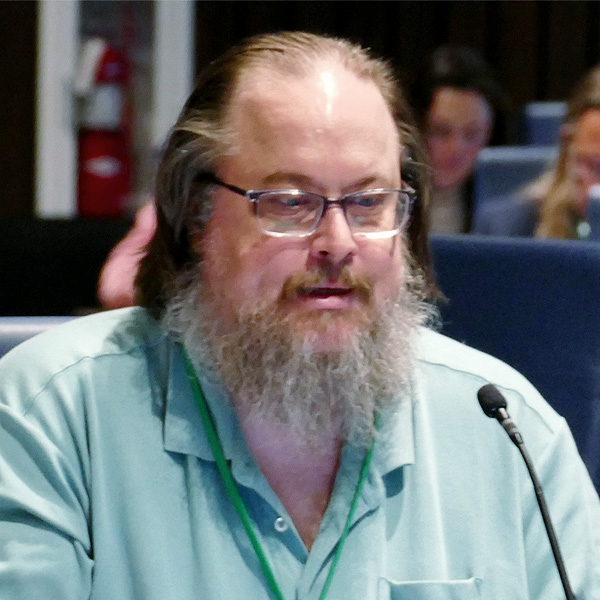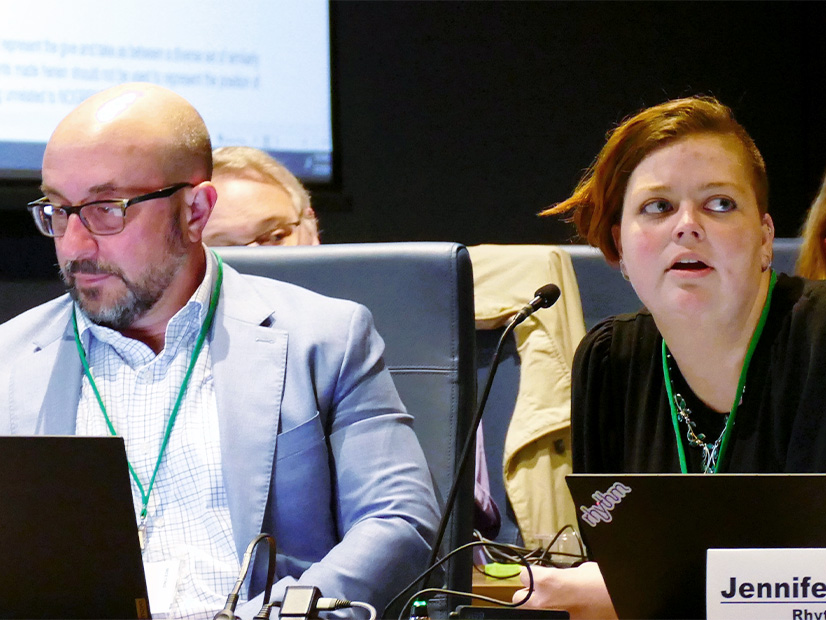Members Endorse Controversial IBR Rule over ERCOT’s Objections
AUSTIN, Texas — ERCOT stakeholders overrode the ISO’s objections to push through a potential rule change on inverter-based resource (IBR) ride-through requirements after months of negotiations failed to bring a compromise.
The action sets up a likely appeal from ERCOT and further discussion on the controversial measure when the ISO’s Board of Directors meets April 22-23.
The Technical Advisory Committee endorsed the Nodal Operating Guide revision request (NOGRR245) during its March 27 meeting with amended language from joint commenters.
The language was “carefully crafted” to “reach a solution that properly balances risk mitigation with economic, technological and operational realities,” the commenters said. “Requirements that are technically infeasible or impracticable to meet (particularly for existing resources) do not benefit Texas consumers or the ERCOT market and do not improve grid reliability.”
The NOGRR is intended to align the grid operator’s rules with NERC reliability guidelines and the most relevant parts of the Institute of Electrical and Electronics Engineers’ standard for IBRs interconnecting with the grid. Two IBR-related voltage disturbances in West Texas in 2021 and 2022, dubbed Odessa Disturbances I and II, have added urgency to the measure’s eventual passage. (See NERC Repeats IBR Warnings After Second Odessa Event.)
Stakeholders have proposed software changes to fix the issues NERC and ERCOT have identified. They have said ERCOT’s proposals, if approved, “will implement the nation’s most aggressive ride-through performance requirements to date.”
The NOGRR passed in an 18-8 vote (69%), with three members abstaining. Two previous attempts to pass motions by stakeholders and then ERCOT failed.
“Thankfully, TAC rolled its sleeves up and refused to keep going without a compromise they could actually carry a motion on,” Arushi Sharma Frank, Tesla’s U.S. energy markets counsel and policy lead, posted on X.
The breakthrough followed hours of discussion during the meeting, a sidebar between staff and stakeholders during lunch and then an additional tweak of the stakeholders’ initial proposed revision to the motion.
ERCOT’s Stephen Solis, a principal for system operations improvement, said the modification to NOGRR245 only made things worse. Solis frequently emphasized the risks to reliability during the day’s discussion. In comments filed in January, ERCOT expressed concerns about implementing “technically infeasible” requirements that could force retirement of too much IBR capacity.
“This worsens reliability from even where we’re at today, because at least today, with the current ride-through requirements, [if] you fail, you have to go to the [Public Utility Commission]. You have to mitigate it. You have to fix it,” he said. “We are putting in a construct that reduces [the requirement]. That is worsening reliability, from ERCOT’s perspective.”
Solis said ERCOT’s comments were ignored during the sidebar discussions with stakeholders.
“[NOGRR245] is moving forward with a concept that because we went into a room with them, that somehow this has ERCOT’s input. ERCOT’s input was to make other modifications, which they denied to make right now,” he said. “This has not changed anything. They have basically thrown a bone about language that is in ERCOT’s current proposed language that they already had agreed to in the [stakeholder] discussions that we had, but they didn’t include it.”
Consultant Eric Goff, representing consumers and the joint commenters, said he didn’t want to get into a “back and forth” with ERCOT. He said stakeholder comments were based on ERCOT comments filed in January but not those filed March 26, given the lack of time. However, Goff said he was open to beginning a conversation with the joint commenters to see whether they could improve their comments by working off ERCOT’s latest filing.
“The goal here is to strike some type of balance. I understand that balance isn’t completely acceptable to ERCOT, but I think it’s important for the stakeholders’ voice to be heard,” Reliant Energy Retail Services’ Bill Barnes said. “I share a lot of concerns with ERCOT on the risk to reliability, just as much as the impact to existing resources is a very heavy issue the board needs to weigh in on.”
The NOGRR was drafted by ERCOT last year and granted urgent status in September. After working its way through the stakeholder process and reaching TAC, it was tabled in January when the ISO’s staff and stakeholders failed to reach consensus. The parties have been involved in negotiations since then. (See “Stakeholders Continue Discussion of IBR Reliability Requirements,” Technical Advisory Committee Briefs: Jan. 24, 2024.)
“I do think that that is in everyone’s best interest to continue to work together with ERCOT to potentially avoid an appeal. I don’t think it’s a good look to have two appeals go to the ERCOT board,” Barnes said. “I value the stakeholders’ opinion enough to get over the hangups that [Reliant] has so we can send a version to [the board] for its consideration and ERCOT can present their appeal if they wish to do so.”
“I’m less concerned with the optics on how it looks to [the board] than getting everybody’s actual position on record,” Jupiter Power’s Caitlin Smith said, speaking for her company and not in her role as TAC’s chair. “I’d hate to say we voted X way or Y way because we didn’t like the way two appeals would look to them than not get everybody’s real point of view on paper.”
“I think that the outcome of the two appeals presents more of a divided view than I think really exists, at least from our company’s point of view,” Barnes said.
ERCOT Reviews Price Corrections
Staff told the committee they will ask the board to approve two price corrections to real-time prices during its April meeting. An analysis of the errors’ effect on the market met the criteria for review when any single counterparty’s absolute value effect is either 2% and greater than $20,000 or 20% and greater than $2,000.
In January, ERCOT’s energy management system (EMS) retained outdated transmission line data during the weekly model builds, affecting three operating days. Staff fixed the software to ensure correct static ratings were used in the models.
The issue resulted in $1.64 million in additional payments to market participants and a $2.84 million impact on counterparties.
During routine maintenance Feb. 28, the process that exports constraint data from the EMS to the market management system sent incorrect constraint data for generic transmission constraints to the dispatch process. The second correction will return $277,930 to ERCOT.
Ögelman Extends ERCOT Service
Kenan Ögelman, ERCOT’s vice president of commercial operations, has extended his retirement date by a month and now will step away from the ISO at the end of April. (See “Ögelman to Retire from ERCOT,” ERCOT Board of Directors Briefs: Feb. 26-27.)
“I have not seen the [reliability must-run] determination for Kenan’s retirement,” Barnes joked.
Smith teasingly suggested discussing Ögelman’s final appearance before TAC during its April 15 meeting, leading Ögelman to fire back.
“You might need a [must-run alternative] for that,” he said, referring to ERCOT nomenclature for replacing a retiring resource’s capacity.
Indeed. Ögelman has scheduled a trans-Pacific Ocean trip a couple of days after he steps away from ERCOT.
TAC Passes Rule Changes
Members endorsed a nodal protocol revision request (NPRR1197) that enables resources to separately meter and settle loads located behind the ERCOT-polled settlement meters at their points of interconnection. South Texas Electric Cooperative voting against the measure over concerns it codifies into protocols the metering situation it had attempted to prohibit in the recently rejected NPRR1194.
They also endorsed a change to the Retail Market Guide (RMGRR177) that clarifies a customer’s lease agreement option when a competitive retailer tries to remove a switch hold applied to a premise it is seeking to enroll. The Office of Public Utility Counsel (OPUC) and residential customers abstained from the vote.
The consent agenda included goals for the Reliability and Operations and Wholesale Market subcommittees and NPRR1205 that, if approved by the board and the PUC, would “strengthen ERCOT’s market entry eligibility and continued participation requirements counterparties by clarifying minimum credit quality qualifications for banks that issue letters of credit on behalf of market participants and insurance companies that issue surety bonds on behalf of market participants.”







